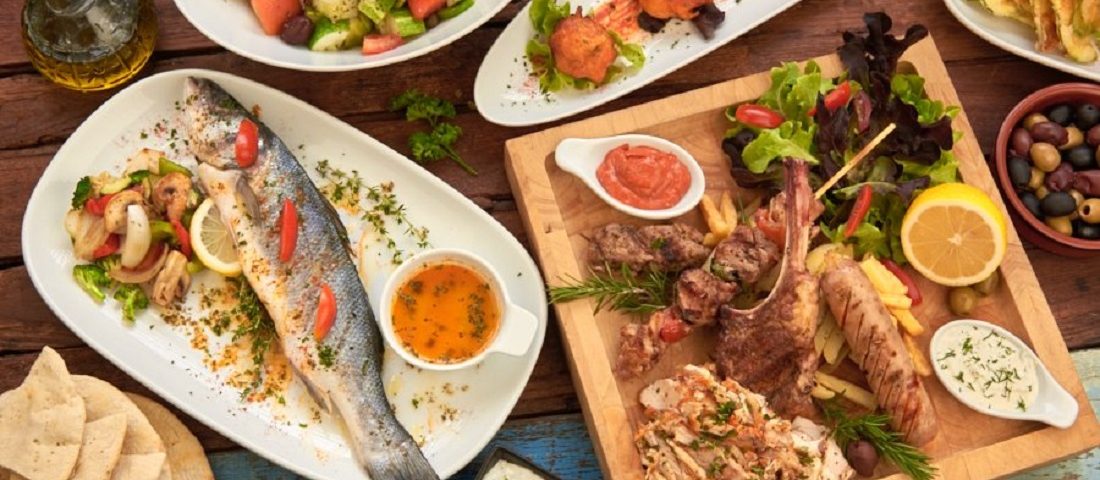Greek cuisine

Fancy working in Hospitality Industry?
August 9, 2017
Greek Moussaka recipe – A delicious taste of Greece
December 1, 2017Greek cuisine is a Mediterranean cuisine. Contemporary Greek cookery makes wide use of vegetables, olive oil, grains, fish, wine, and meat (white and red, including lamb, poultry, rabbit and pork). Other important ingredients include olives, cheese, eggplant, zucchini, lemon juice, vegetables, herbs, bread, and yogurt. The most commonly used grain is wheat; barley is also used. Common dessert ingredients include nuts, honey, fruits, and filo pastry. It is also influenced by Turkish cuisine because of approximately 400 years of Ottoman government. Foods such as baklava, tzatziki, gyro, moussaka, dolmades, youvarlaki and kefthes are shared staples in the cuisines of countries that emerged after the collapse of the Ottoman empire, such as various Balkan countries, Greece and Turkey.
The most characteristic and ancient element of Greek cuisine is olive oil, which is used in most dishes. It is produced from the olive trees prominent throughout the region, and adds to the distinctive taste of Greek food. The olives are also widely eaten. The basic grain in Greece is wheat, though barley is also grown. Important vegetables include tomato, aubergine (eggplant), potato, green beans, okra, green peppers, and onions. Honey in Greece is mainly honey from the nectar of fruit trees and citrus trees: lemon, orange, bigarade (bitter orange) trees, thyme honey, and pine honey. Mastic (aromatic, ivory coloured resin) is grown on the Aegean island of Chios.
Greek cuisine uses some flavorings more often than other Mediterranean cuisines do, namely: oregano, mint, garlic, onion, dill and bay laurel leaves. Other common herbs and spices include basil, thyme and fennel seed. Parsley is also used as a garnish on some dishes. Many Greek recipes, especially in the northern parts of the country, use “sweet” spices in combination with meat, for examplecinnamon, whole spice, and cloves in stews
Fish dishes are common in coastal regions and on the islands. A great variety of cheese types are used in Greek cuisine, including Feta, Kasseri, Kefalotyri, Graviera, Anthotyros, Manouri, Metsovone, Ladotyri (cheese with olive oil), Kalathaki (a specialty from the island of Limnos), Katiki-Tsalafouti (both creamy cheeses, suitable for spreads) and Mizithra.
Too much refinement is generally considered to be against the hearty spirit of the Greek cuisine, though recent trends among Greek culinary circles tend to favour a somewhat more refined approach.
Dining out is common in Greece and has been for quite some time. The Taverna and Estiatorio are widespread, serving home cooking at affordable prices to both locals and tourists. Recently, fast food has become more widespread, with local chains such as Goody’s springing up, though most McDonald’s have closed. Locals still largely eat Greek cuisine. In addition, some traditional Greek foods, especially souvlaki, gyros, pita such as tyropita and spanakopita (respectively, cheese and spinach pie) are often served in fast food style.





